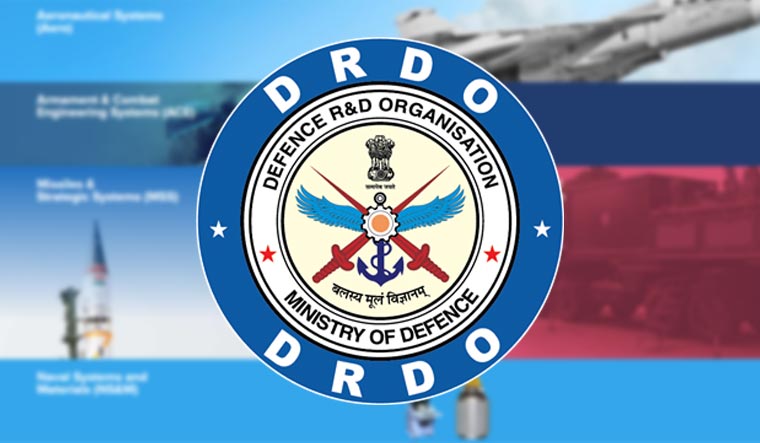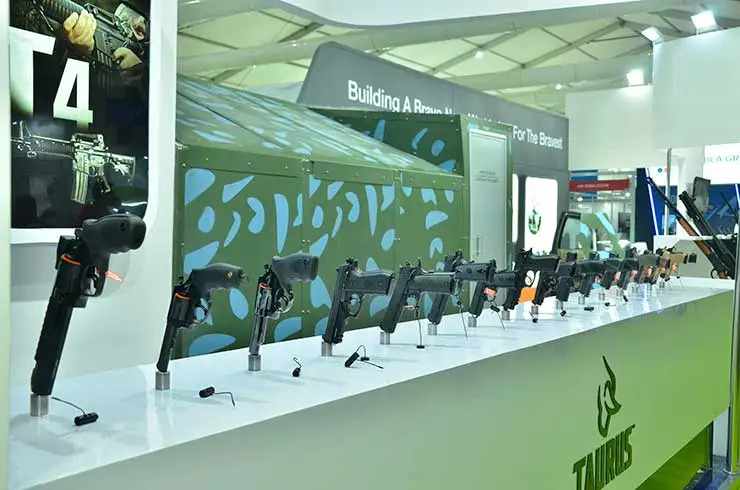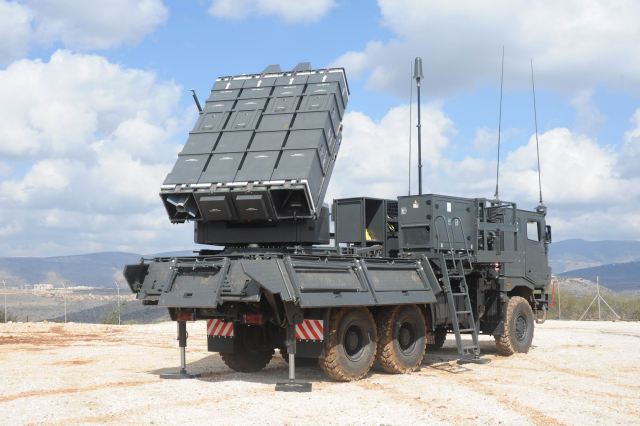The state of Israel located in Middle East owns one of the fastest growing Military-Industrial Complex (MIC) in the world. Geographically a small state, Israel that claims to be an official homeland for Jews on occupied territories of Palestine is highly ambitious to maintain militarily a mighty status in the Arab world. In order to empower its offensive policies against neighbouring states the initial Jewish leadership from Knesset decided to maintain formidable military power coupled with high growth of its MIC. The rapid growth of Tel Aviv’s MIC enabled Jewish leaders to establish their commercial links with other states in strategic domain. The state of Israel, in this way, became one of the leading weapon manufacturers in the international system. Tel Aviv exports 75% of the weapon it produced and 28% of its weapons exports are missiles, drones, or missile defence systems. This Jewish country has maintained the weapons marketing and security protocols with over 130 states. Israel’s MIC and it external relations with the international community while becoming one of the major sources of Tel Aviv’s economy are playing a vital role in managing its foreign policy in the international system. Before analysing further the potential of Israel’s MIC inherited in five main weapon manufacturing companies and their commercial connections across the globe, it is essential to understand the notion of MIC and its essence in world politics.
The MIC generally refers to the network of individuals and institutions engaged in the weapon industry and involved in the production of weapons while adopting technologically advanced techniques for the development of upgraded military equipment. The physical location of military production houses is also considered to be an essential part of MIC. The persuasion of such policy increased the military spending of states by maintaining culture of weapon production. The involvement of principle contractors, prime subcontractors, experienced consultants, main education centres, highly skilled technicians and state-owned installations engaged in manufacturing of weapons by applying the newly discovered hi-tech methods in armament industry express the level of MIC in a particular country. The notion of MIC, in other words, is observed to be an undefined or a loose coalition of influential people or powerful groups who successfully create an active connection between their economic-institutional-political interest and hi-tech military industry.
The 34th President of the United States and a five-star general during the Second World War, Dwight D. Eisenhower coined the new term MIC in his farewell address to the American nation in 1961. The American President, speaking from the White House warned his nation about the upcoming uncertainties and changes of world politics by saying “In the councils of government, we must guard against the acquisition of unwarranted influence, whether sought or unsought, by the military–industrial complex.” Eisenhower went further elaborating the conception of MIC and stressed the need of American arms build-up to make America capable to deter potential aggressors emanating from uncertain directions. The emphasize on the weapon industry let American improve its pre-WWII position when the concept of standing army or any permanent weapons manufactures were not the leading priorities of Washington. But the occurrence of two major wars changed world history and signified the need for establishing of armament industry. The American idea of managing weapon industry gradually gained momentous popularity globally and leaders from different corners of the world started to think in American directions. A web of public and privately owned companies parallel to the single and multiple countries’ armament industries mushroomed around the globe. Further growth of MIC raised a coalition of companies, various agencies, and countless arms dealers or weapon traders across the border.

The worldwide unprecedented growth of MIC inaugurated a global competition in the weapon industry. An unending race in the weapon industry resulted in countless arms deals and numerous weapon exchange agreements between states. The leaders obsessed with ideological conflicts, self-proclaimed security issues, ambitious to dominate others, and determined to achieve superior status over neighbours preferred to obtain the support of states with advanced weapons industry. The states engaged in introducing hi-tech weapons prefer to develop their diplomatic or commercial relations with aspirants of advanced weapons in world politics. Indian Defence Research and Development Organization (DRDO) carrying the tasks of military research and communicating its demands with global defence industry cannot simply be ignored in this regard. The DRDO founded in 1958 and working under the Ministry of Defence, New Delhi has always remained a potential customer of world’s leading MICs. DRDO’s association with its Israeli counterpart is considered to be an association of strategic partners. India-Israel military-to-military relations and a multifaceted layer of different weapon deals between Tel Aviv and New Delhi cannot simply be ignored. Israel’s advanced weapon industry cannot be separated from the international weapon market where Indian leaders are willing to buy Israeli-made highly advanced weapon systems.
According to the statistics collected and calculated by Stockholm International Peace Research Institute (SIPRI), the arms production in Israel and its trade with India shows unprecedented growth. SIPRI’s Arms Transfers Database generated on July 28, 2017 ranked Israel 8th in 2015 and 7th in 2016 in the list of top 50 arms exporters in the world. SIPRI’s report on top 50 arms importers ranked India at 3rd in 2016. Another report of SIPRI on 20 major arms importers 2012-16 placed India at the top in the list. The team of researchers at SIPRI identified 155 states importing major arms in the last five years and declared India as the biggest recipient of global arms. The analysis of SIPRI further recognised Israel as the main supplier of arms to India and Israel shares 40.55% of its arms exports to India. Israel stood third, after Russia and America, in India’s total arms import by contributing 7.2%. As a third largest source of Indian arms, Israel is committed to maintain its leading weapon companies active in meeting Indian demands.
The recent trends of arms trade cannot be divorced from historical record of Indo-Israeli partnership which emerged in the 1960s. During the Indo-China war in 1962 along with subsequent clashes with Pakistan in 1965 and 1971, Israel not only provided military aid to India but also supported New Delhi against its neighbours (China and Pakistan). The reciprocal development occurred in the 1967 Arab-Israel Six Day War when India provided the French supplied Dassault Mystere and Dassault Ouragan fighter aircraft and AMX-13 light tanks to Israel Defense Forces (IDF). In this way, the initial foundations for strategic relations between two states were established.
The advanced arms industry of Tel Aviv, in the search of an appropriate customer from international system tagged India in Israel’s leading weapon exporting policy. India’s strategic thrust for empowering its role in the regional and global politics increases New Delhi’s important before Tel Aviv as a potential buyer of Jewish weaponry. Through various arms deals cemented in different defence pacts between two states, India emerged as the largest buyer of Israel’s military hardware. Evidenced from historical bilateral strategic interaction, the governments of both sides considered the cooperation of two-sided defence industry as a significant step in their friendship. The collaboration in defence field based on seller-buyer relationship proved to be a strong foundation of Tel Aviv-New Delhi strategic bilateralism.

Recently, the joint ventures of Israel and India finalized a plan for opening of a first private small arms manufacturing plant in India. The proposed plan for small arms production in Malanpur, Madhya Pradesh will ensure the collaboration of Punj Lloyd and Israel Weapon Industries (IWI). Punj Lloyd as an international company working across Middle East, Asia, Asia Pacific, the Caspian, and South Asia and has spread its operations in different continents. While engaged in defence and aviation production, Punj Lloyd holds its central workshops and equipment maintenances centres in India, Indonesia, Abu Dhabi, and Kazakhstan. The headquarters of Punj Lloyd is located in Gurgaon, Haryana (India) established on July 04, 2017. It is a complex for the production of X-95 carbine and assault rifles, Galil sniper rifles, Tavor assault rifles and Negev Light Machine Guns (LMGs) with the help of IWI. The IWI manufacture and designs small arms for military, homeland security and global commercial market. The technologically innovative products of IWI made it a prominent and bestselling weapon manufacturer. Apart from IWI, Elbit Systems, Israel Aerospace Industries (IAI), the Rafael, and Israel Military Industries (IMI) are concentrating on Indian demands and are engaged in providing advanced weapons to New Delhi.
Elbit systems is an internationally known Israeli defence electronic company and its products mainly cover advanced airborne systems, land and naval systems and products for defence, homeland security and commercial aviation applications. Elbit systems is regularly introducing its newly invented products in Aero India biennial air show. In the last exhibition in Bangalore on February 14-18, 2017, the Elbit presented rotary winged aircraft protection solutions, intelligence gathering and training and simulation solutions. In a media interview on June 2017, the Elbit showed its determination in upgrading its major products, mainly drones, for meeting the demands of its customers, South Korea, the United States and India.
The DRDO’s major partner for boosting India’s military capabilities has always remained restricted to the IAI. The 60 year defence and commercial experiences of IAI makes it a leading company working in multiple directions, its main domains cover the areas of air, space, land, sea, cyber, homeland security in addition to meeting the required needs of IDF. The landmark steps in IAI’s partnership with India appeared in January 2008 when a space collaboration agreement between New Delhi and Tel Aviv allowed the two governments to carry a satellite launch activity. The IAI launched Synthetic Aperture Radar (SAR) satellite on an Indian launcher from a test filed located in Southeast India. A combined team of India and Israeli experts attempted to test the launching of satellite (TECSAR). Further joint efforts for deepening the bilateral relations of both countries provided India more opportunities, and Mumbai based TATA Group signed a Memorandum of Understanding (MoU) with IAI. The Israeli company agreed to provide wide range of defence and aerospace products, including missiles, UAVs, radars, Electronic Warfare (EW), and Homeland Security (HLS) systems. The IAI incorporation of Elta Electronics Industries of Israel developed EL/W-2090 Airborne Early Warning and Control (AEW&C), and according to SIPRI report on airborne and space-based long-range sensors systems, Israel transferred 1 long-rang AEW system to Italy and 2 long-range airborne ground surveillance systems to India. The Elta is fundamentally IAI’s subsidiary company specialized in manufacturing equipment for Intelligence, Surveillance, Target Acquisition and Reconnaissance (ISTAR), Early Warning and Control, Homeland Security (HLS), Self-Protection and Self-Defense and Fire Control applications.

The Cabinet Committee on Security (CCS) working under the central government of India is working to supervise the defence expenditures of the nation. The CCS’s dealing of weapons purchase systems from other states is planning to finalize a $ 1billion deal of purchasing Spike Anti-Tank Guided Missile (ATGM) from Rafael. The Rafael Advanced Defense Systems or commonly known as Rafael Armament Development Authority is a Haifa-based defence technology company founded in 1948, and engaged in providing the required weapons and defence technologies to IDF. Bharat Dynamics Limited (BDL) established in 1970 under Indian Ministry of Defence (MoD) became a main enterprise of the Indian government. BDL is, no doubt, working to reduce New Delhi’s dependency on foreign supplies of ATGM, but still the acquisition of advanced ATGM forced India to negotiate a deal with Rafael. Besides Rafael, the IMI systems, analogous to other four companies, is primarily specialized in providing combat-proven solution for all three wings of IDF. IMI systems is also actively pursuing its weapon deals with India while meeting its commercial objectives.
The five abovementioned Israeli companies are busy producing hi-tech weapons and exporting 95% of their production to global market where India is the biggest customer of Israel. The weapon deals with India improved Israel’s position in international weapon market and its position touched high ranks in the global list of arms exporters. The continuously improving weapon industry of Israel ranked it 15th militarily powerful nation of the world which helped the Jewish leaders attract more states in the global weapon market. The Jewish leadership of Israel is determined to provide the best weapons to their customers generally, and its South Asian ally specifically. India is not only a potential strategic ally of Israel, but it has become the biggest purchaser of Tel Aviv’s weapons. The Jewish authorities are committed to uphold their weapon industry in the global market irrespective of the abysmal record of human rights violations of their customers, and the use of Israeli produced weapons. The recipients of Israel’s weapons, like India, are mainly pursuing offensive policies in their regions by jeopardizing the security of territorially adjoining nations. While providing technologically advanced weapons to its customers, leaders from Tel Aviv look the other way regarding the behaviour of their prospective clients towards Zionism but when Tel Aviv is successful in establishing strategic ties with its commercial partners, then it forces the dependant countries to avoid criticizing belligerent Jewish policies in the Middle East. Furthermore, the members of Knesset do not allow their strategic partners to criticize or evaluate Israeli human rights violations against bordering Arab stats. In this way, the MIC of Israel is serving the greater national interest of Tel Aviv beyond its economic benefits.
The discussion on Indo-Israeli strategic ties cannot be ignored from abovementioned record of Tel Aviv’s MIC and its inevitable links with India. The recent Modi-Netanyahu meeting proved to be a milestone step towards wider cooperation of two states. Prime Minster Modi obsessed with anti-neighbourhood policies agreed to buy more weapons from Israel by attaching main Indian companies with Tel Aviv’s MIC. The high rate of Arms trade between India and Israel has become a source of fostering the arms race in South Asia which will fracture the regional strategic balance of the nuclearized subcontinent. No doubt, Modi’s meeting with Netanyahu is considered to be an Indian diplomatic step for increasing defence ties between two states but its leaves disastrous implication on the South Asian security environment. Tel Aviv’s MIC and its association with New Delhi is portraying an awful situation of South Asian in which the Indian bellicose behaviour towards its bordering states will create a negative regional environment. The Indo-Israel strategic nexus will have disastrous consequences for the South Asian region. The responsibility lies on the international community which is vocal towards standards of peace, stability, and security around the globe. The military-to-military ties of Jewish and Hindu leaders is becoming an area of immense importance that unfortunately does not proper invite international attention. The main players in the international strategic community need to address the unprecedented growth of India-Israel military relations, and design adequate measures to regulate the strategic ambitions of both states.




